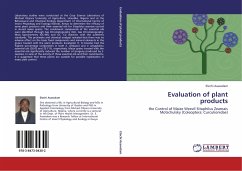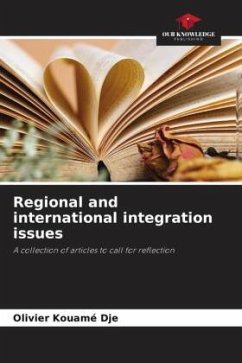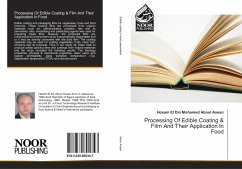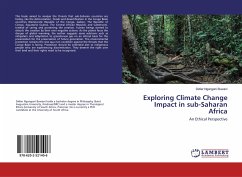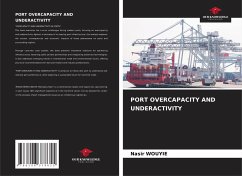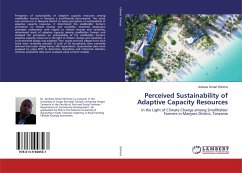
Perceived Sustainability of Adaptive Capacity Resources
In the Light of Climate Change among Smallholder Farmers in Manyoni District, Tanzania
Versandkostenfrei!
Versandfertig in 6-10 Tagen
47,99 €
inkl. MwSt.

PAYBACK Punkte
24 °P sammeln!
Perception of sustainability of adaptive capacity resources among smallholder farmers in Tanzania is insufficiently documented. This study was carried out in Manyoni District to assess perception of sustainability of adaptive capacity resources. It determined the smallholder farmers' perception on climate change and variability; examined adaptation strategies undertaken with regard to climate change and variability; determined levels of adaptive capacity among smallholder farmers and analysed the perception on sustainability of the smallholder farmers' adaptive capacity resources in the light ...
Perception of sustainability of adaptive capacity resources among smallholder farmers in Tanzania is insufficiently documented. This study was carried out in Manyoni District to assess perception of sustainability of adaptive capacity resources. It determined the smallholder farmers' perception on climate change and variability; examined adaptation strategies undertaken with regard to climate change and variability; determined levels of adaptive capacity among smallholder farmers and analysed the perception on sustainability of the smallholder farmers' adaptive capacity resources in the light of climate change and variability. A cross-sectional design was adopted. Four wards and two villages from each ward were randomly selected. A total of 30 households were randomly selected from each village hence 240 respondents. Quantitative data were analysed by using SPSS to determine descriptive and inferential statistics, whereas qualitative data were analysed using content analysis.






